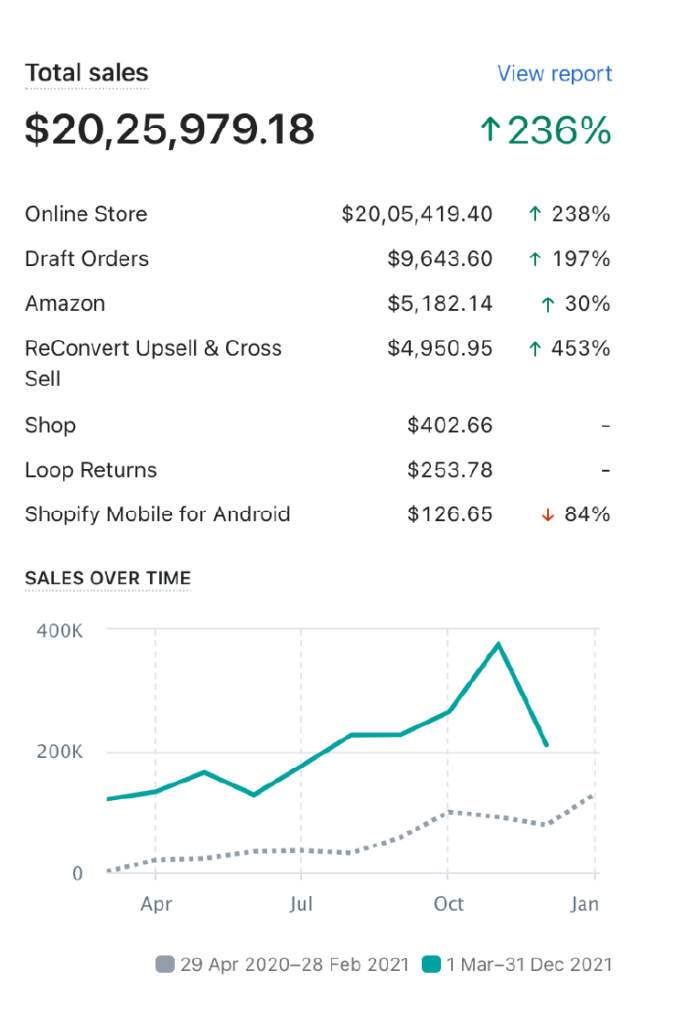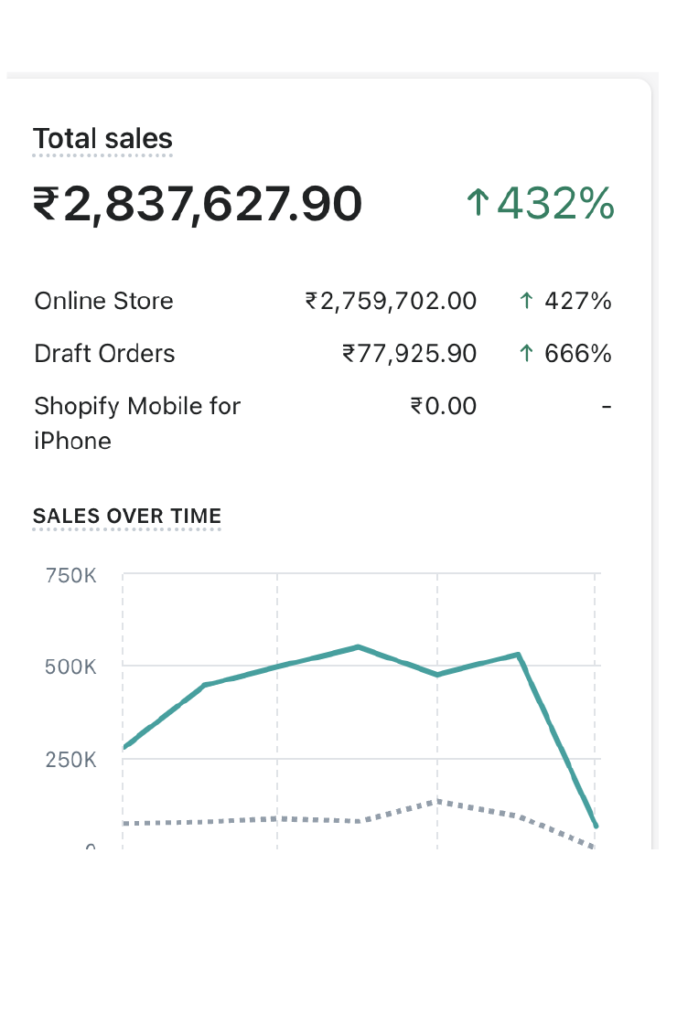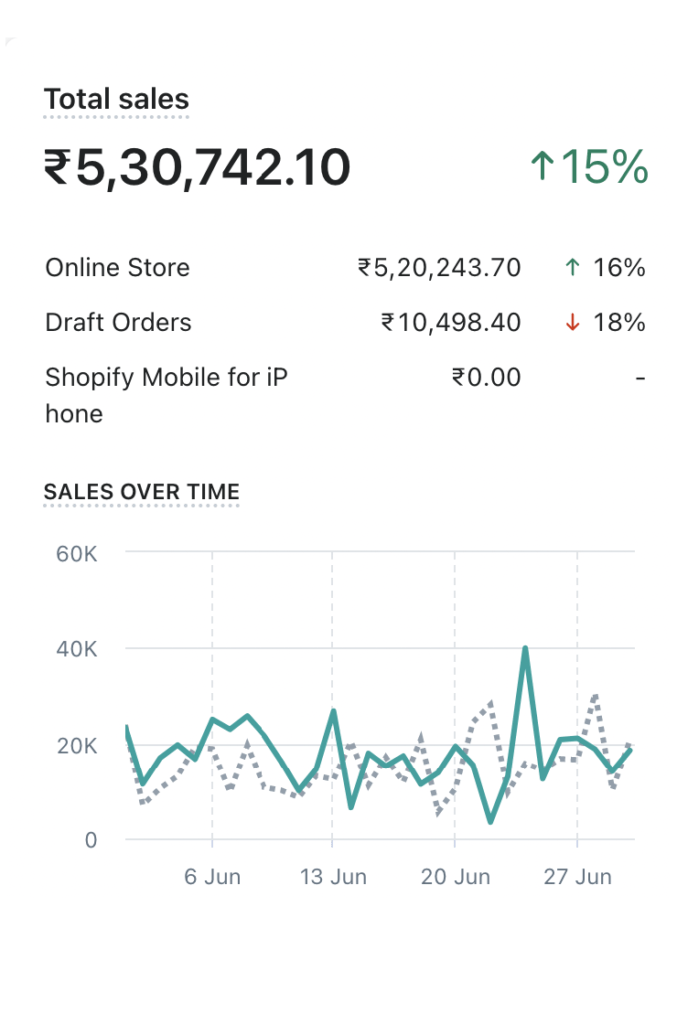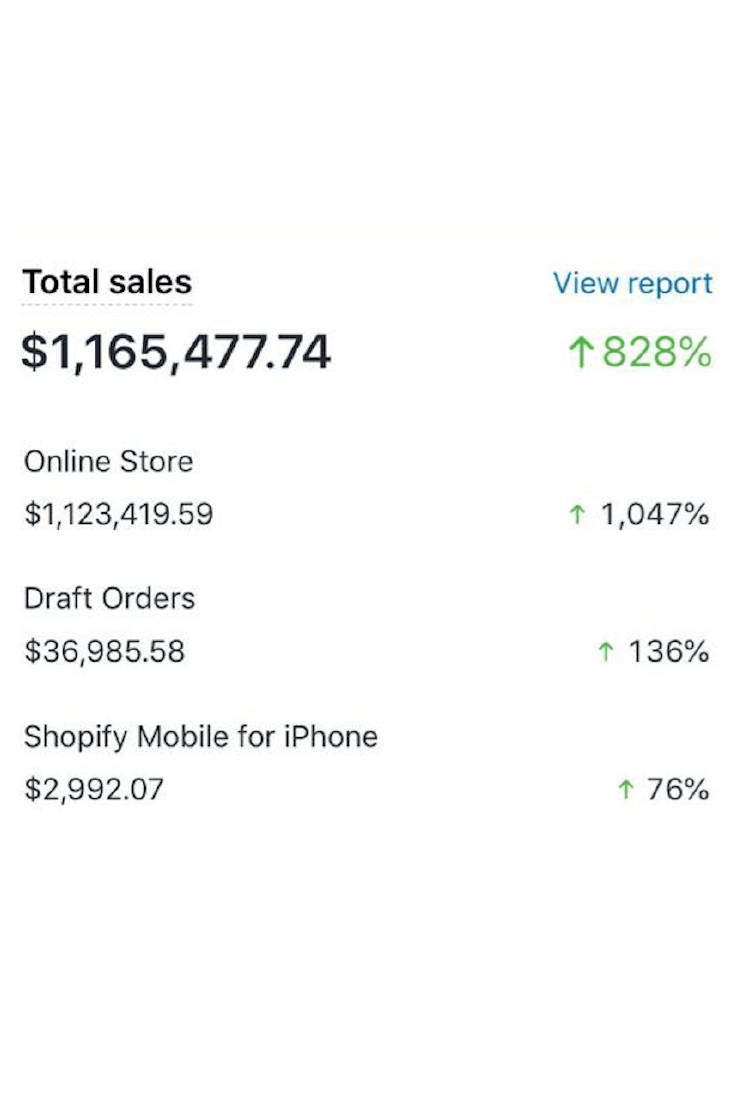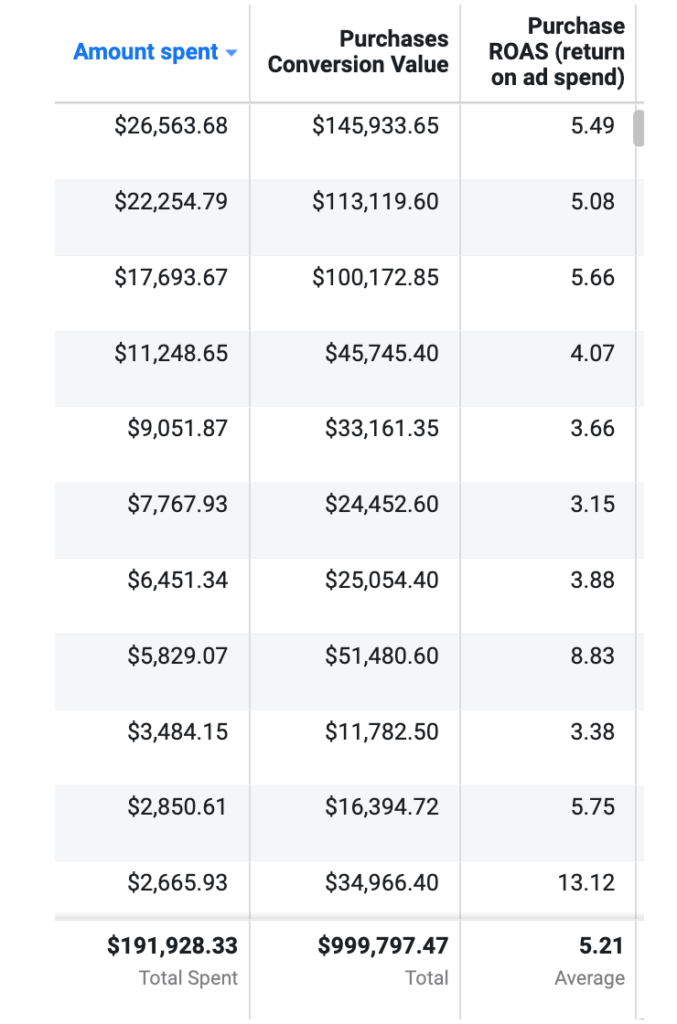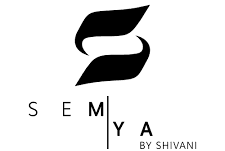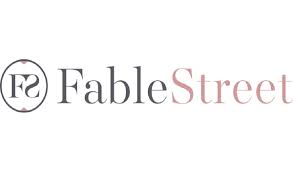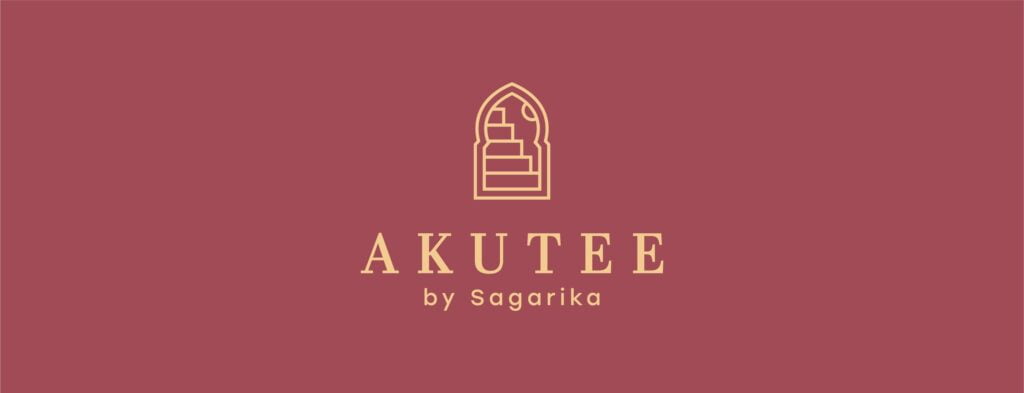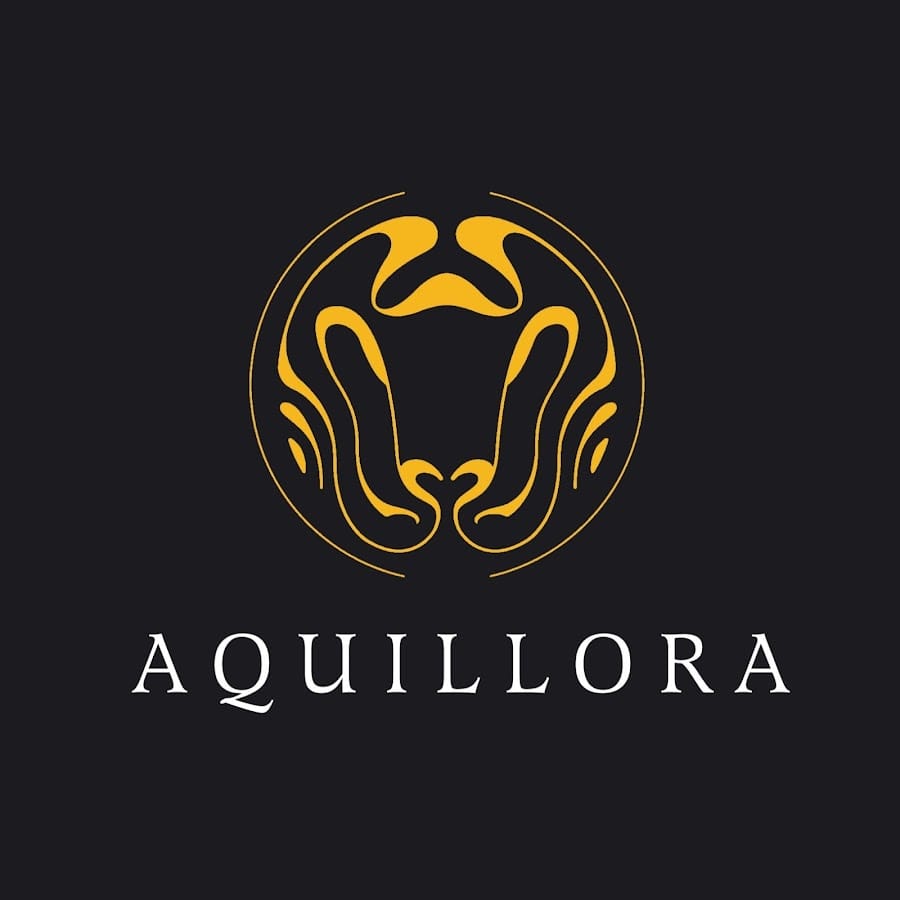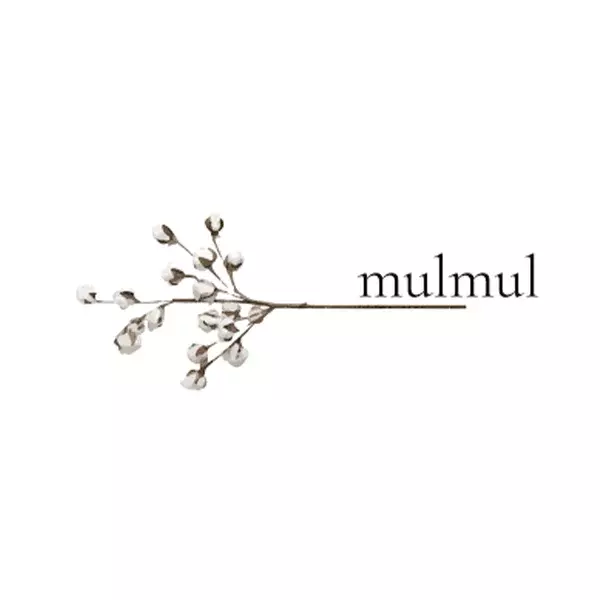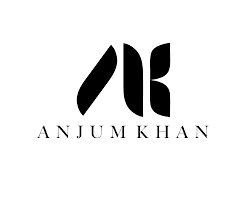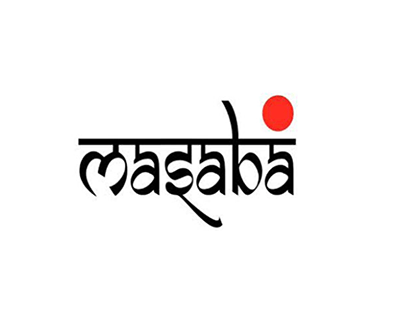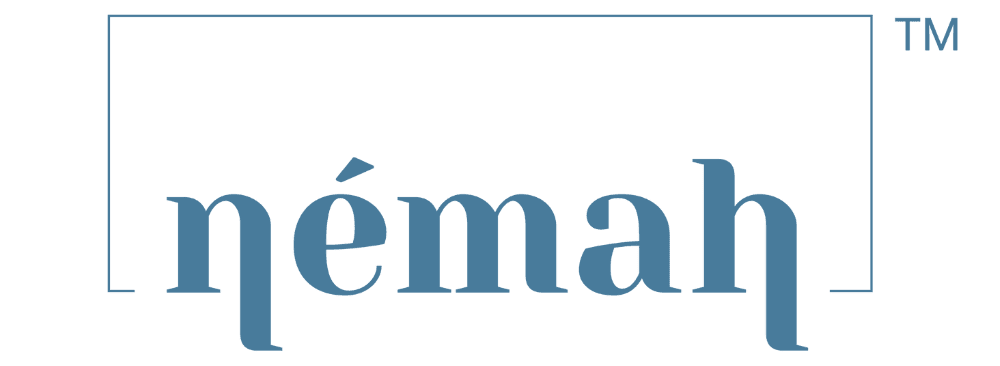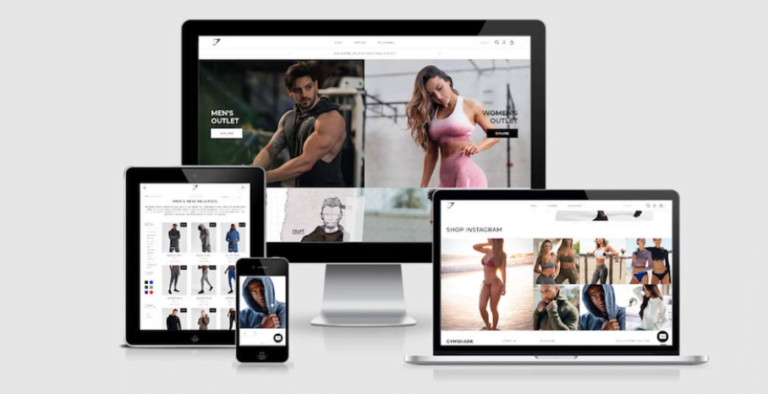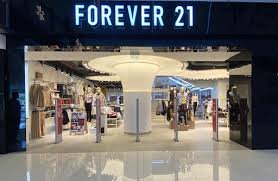Marketing Strategy Of Louis Vuitton
Louis Vuitton, one of the most iconic luxury brands in the world, is a master of creating and maintaining exclusivity while keeping up with modern digital trends. The brand’s ability to evolve in a fast-paced environment while staying true to its heritage is a key factor in its continued success. A leader in both craftsmanship and marketing, Louis Vuitton consistently sets benchmarks in the fashion world, often inspiring strategies that any fashion marketing agency in the UK could analyze and adopt.
This blog examines the brand’s comprehensive marketing strategy, including successful social media campaigns, innovative product launch tactics, creative advertising, and website conversion rate optimization (CRO) methods. Such holistic approaches are standard for any fashion marketing agency in the UAE aiming to position luxury brands effectively in the digital space.
We as a digital marketing agency for luxury brands are excited to take on this journey, are you? Let’s discover their fashion marketing strategy
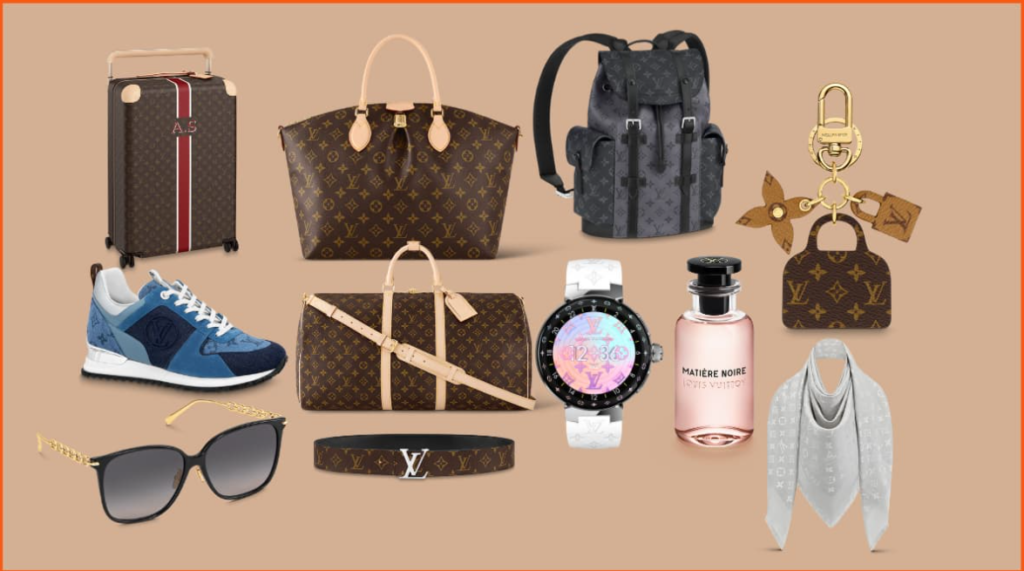
Brand Positioning
Louis Vuitton’s brand identity is a symbol of luxury, heritage, and timeless sophistication. Its marketing strategy is rooted in the exclusivity of its products, which cater to a high-net-worth clientele while appealing to aspirational buyers who seek luxury as a status symbol. The ability to create and maintain this aura of desirability is central to Louis Vuitton’s success.
Louis Vuitton is highly selective about where it places its products, choosing premium stores and online platforms. This strategy creates a sense of scarcity that enhances the brand’s value. Its marketing initiatives reflect the same exclusivity, reinforcing the notion that Louis Vuitton is reserved for a sophisticated, affluent audience. This is a strategy often seen with luxury brands represented by the top fashion marketing agency UK.
Popular Social Media Campaigns
Louis Vuitton has embraced social media, using it to both engage with its existing clientele and attract a younger, digitally savvy audience. The brand’s social media campaigns have demonstrated a perfect blend of storytelling, visual appeal, and audience engagement, keeping the brand relevant in the digital age.
One of the most successful campaigns is the #LouisVuittonPass, which leveraged augmented reality (AR) to enhance user experience. This campaign invited users to scan Louis Vuitton’s ads or window displays to unlock exclusive content such as behind-the-scenes looks at the brand’s fashion shows and product creation processes. The #LouisVuittonPass campaign encouraged engagement and established a deeper emotional connection with the audience, creating a more interactive and immersive brand experience.
Another notable campaign is the #LVConnected, which promoted the brand’s line of smartwatches and other tech accessories. With this campaign, Louis Vuitton strategically positioned itself at the intersection of fashion and technology, appealing to a younger audience that values both style and innovation. Through partnerships with influencers, Louis Vuitton managed to create buzz around the product launch, successfully blending luxury with modernity.
These campaigns reflect the brand’s understanding of digital platforms and how they can be leveraged for engagement—a tactic that brands looking to work with a fashion marketing agency London should take note of. Louis Vuitton’s social media presence showcases how a luxury brand can balance exclusivity while still being accessible through digital engagement.
Marketing Mix
Even if you aren’t a fashion enthusiast, the name Louis Vuitton is undoubtedly familiar. Whether it’s the iconic brown and beige tote that catches your eye or the aspiration to own a luxurious bag, the renowned LV brand has captured the hearts of many. Forbes, in 2021, estimated its value to be a staggering $39.3 billion. In the ever-changing world of luxury fashion, few names have stood the test of time like Louis Vuitton.
It exudes elegance, admiration, and instant recognition. Amidst a sea of luxury labels, Louis Vuitton stands tall in a league of its own, a remarkable achievement for a brand born more than a century ago in 1854.
Behind Louis Vuitton’s enduring success lies a brilliant advertising strategy. This approach has sculpted the brand’s image as an unattainable luxury, making it the stuff of dreams and desires. As a result, the brand consistently achieves increased sales and customer engagement with each new campaign, a strategy that even a top fashion marketing agency in New York could learn from for luxury brand promotion. Surprisingly, this advertising magic hasn’t required a massive budget.
Louis Vuitton, a leading and easily recognizable fashion brand, has designed its marketing approach by carefully studying its customers’ demographics and preferences. This level of strategic planning mirrors practices that best fashion marketing agency in Australia would employ to ensure customer alignment. Over time, the brand’s products have become a symbol of exceptional quality, a perception that people wholeheartedly embrace, reaffirming its unparalleled market position.
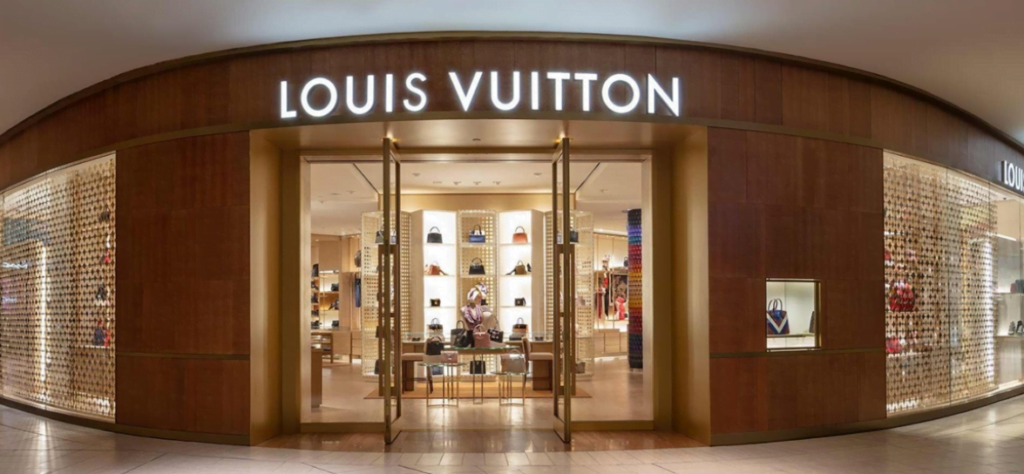
Let’s take a look at Louis Vuitton’s marketing mix
Product– Louis Vuitton takes a different approach to boost production capacity – they employ skilled artisans with expertise to craft products by hand. This results in original and one-of-a-kind merchandise that truly reflects the aspirations and desires of consumers. To meet the demands of a discerning market, the company invests significant effort and resources, making their products nearly impossible to replicate at the same level of quality.
Place– Louis Vuitton has a clear and exclusive distribution policy for its products. To maintain the exclusivity, their items are only available in official Louis Vuitton stores. The company follows a limited and selective distribution approach, preferring to rely on their own stores for product sales.
LV deliberately avoids selling their branded products in department stores. They firmly believe that their own stores provide the best environment for customers, where professional and knowledgeable salespeople can offer a personalized experience. This approach helps them reduce intermediary costs associated with multiple distribution channels and fosters direct and friendly relationships with customers. In the long run, this marketing strategy proves to be efficient and effective.
They have strategically placed all their stores in prime locations, ensuring immediate attention from passersby. The products within these stores are showcased prominently, perfectly reflecting the essence of a luxury brand. With approximately five hundred retail stores worldwide, Louis Vuitton has established its presence in various regions, including Los Angeles, Dubai, Las Vegas, New York, Paris, and Tokyo. However, online purchases of Louis Vuitton products are limited to customers in the United States.
Price- Louis Vuitton makes substantial investments to ensure the top-notch quality of its products. The timeless design of their merchandise allows the company to maintain premium pricing. Across its distribution network, Louis Vuitton follows an integrity pricing policy, meaning products cannot be discounted or put on sale. As a result of the high prices, Louis Vuitton items are accessible mainly to the upper classes. The company is known for adhering to a value-based pricing strategy.
Promotion- Louis Vuitton has employed a successful advertising strategy by enlisting celebrity endorsements. Renowned actors like Jennifer Lopez, Kate Moss, Scarlett Johansson, and Uma Thurman have served as brand ambassadors, participating in high-profile campaigns. This celebrity-driven approach is often highlighted by a top fashion marketing agency in the UK as a way to elevate brand prestige and appeal.
Additionally, the brand actively sponsors major sporting events like yacht racing and motorsport, which attract the crème de la crème of society. These sponsorships allow Louis Vuitton to establish a direct connection with its target audience. Advertising serves as the primary tool for creating product awareness and reinforcing exclusivity, and Louis Vuitton excels at producing high-fashion ads that evoke a personal touch, a tactic frequently employed by best fashion marketing agency in Australia for premium branding.
By combining celebrity endorsements and strategic event sponsorships, the company has mastered the art of creating awareness and maintaining its image as a coveted luxury brand. The ads produced by Louis Vuitton are meticulously crafted to exude an air of exclusivity, leaving a lasting impression on the brand.
This demographic strategy has caused a sensation in the advertising industry and played a significant role in elevating the popularity of Louis Vuitton products worldwide. Many of these ads feature celebrities, establishing an emotional connection with consumers. When people see these ads, they feel like they are part of an exclusive and privileged group, fostering a sense of belonging and aspiration.
Let's break down their advertising strategy
Celebrating the exceptional handcrafted quality

Louis Vuitton’s social media advertisements are characterized by high-quality visuals and aspirational storytelling. Rather than focusing solely on promoting products, the brand highlights its lifestyle and heritage through carefully crafted narratives.
One standout campaign was the promotion for the Louis Vuitton Horizon Soft Luggage, a high-end collection of travel accessories. The campaign, shot by a renowned photographer, focused on the elegance and craftsmanship of the luggage while emphasizing the luxury travel experience. This advertising campaign used aspirational visuals to appeal to Louis Vuitton’s core customer base while highlighting the brand’s craftsmanship—a key element in luxury marketing.
Additionally, Louis Vuitton’s influencer partnerships have proven effective in promoting its products on social media. Collaborating with influencers like celebrities and models, such as Emma Stone in the “Spirit of Travel” campaign, helped the brand position itself as a leader in luxury travel accessories. The campaign reached millions through social media, bolstered by influencers who resonated with the target audience.
Video content has been another critical element of Louis Vuitton’s advertising strategy. Through short, visually stunning videos posted on platforms like YouTube and Instagram Stories, Louis Vuitton has managed to engage followers by offering a behind-the-scenes look at fashion shows, design processes, and celebrity collaborations. This content humanizes the brand, allowing consumers to connect with Louis Vuitton on a deeper level, a tactic frequently employed by the best fashion marketing agency.
Employing exclusivity as a key element

The element of exclusivity played a crucial role in the success of Louis Vuitton’s advertising strategy. When consumers become aware that a series of products is limited, they are motivated to make a purchase quickly while it’s still available. This phenomenon is known as FOMO (Fear Of Missing Out), which prompts people to act swiftly for fear of missing out on a great opportunity.
The exclusivity in Louis Vuitton’s advertising strategy makes the brand even more coveted by consumers. This approach is not limited to luxury brands; any business can use FOMO to enhance the value of its products and tap into consumer psychology to drive more purchases.
Collaborating with top-notch talents
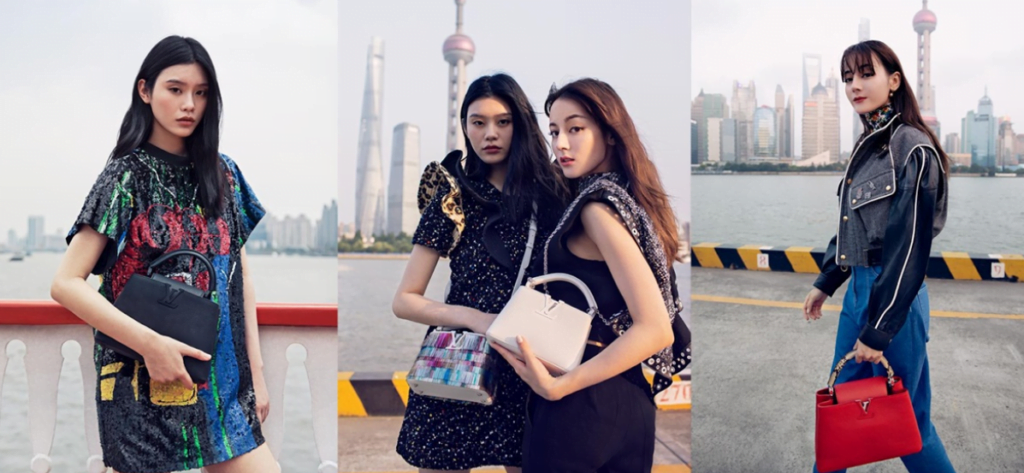
One of the secrets to LV’s success lies in having their products designed and promoted by the best talents. Over the years, renowned names in the fashion industry, like Helmut Lang, Vivienne Westwood, Azzedine Alaïa, Stephen Sprouse, Sybilla, Manolo Blahnik, Isaac Mizrahi, and Romeo Gigli, have joined forces with LV.
However, having a perfect product is not enough without effective promotion. This is where Louis Vuitton’s advertising strategy shines. To promote their glamorous luxury products, the brand enlists glamorous celebrities and models. Their campaigns have featured top-notch celebrities like Angelina Jolie, Mikhail Gorbachev, Sean Connery, Pharrell Williams, Jennifer Lopez, Uma Thurman, Kanye West, and others, alongside established and emerging models such as Emmy Rappe, Ming Xi, and Xavier Dolan.
Marketing Campaigns
The collaborative campaign known as "Make A Promise."

In 2016, Louis Vuitton took a daring step by collaborating with UNICEF in the “Make A Promise” campaign, a remarkable move for a fashion company. The campaign aimed to support vulnerable children worldwide. Louis Vuitton designed exclusive bracelets, with the revenue from their sales being donated to UNICEF to aid children in need. This philanthropic strategy is one that a top fashion marketing agency in New York might recommend for aligning luxury fashion with social good.
Participating in the campaign was simple: people were encouraged to take a photo, use the hashtag, and spread the word. LV models enthusiastically embraced the cause, and a wave of user-generated content followed suit. This user engagement approach mirrors tactics employed by best fashion marketing agency in the UK to create viral, purpose-driven campaigns. The campaign generated around 14,000 #makeapromise posts on Instagram, resulting in nearly $10 million being donated to the cause.
The Cruise 2017 Show by Louis Vuitton
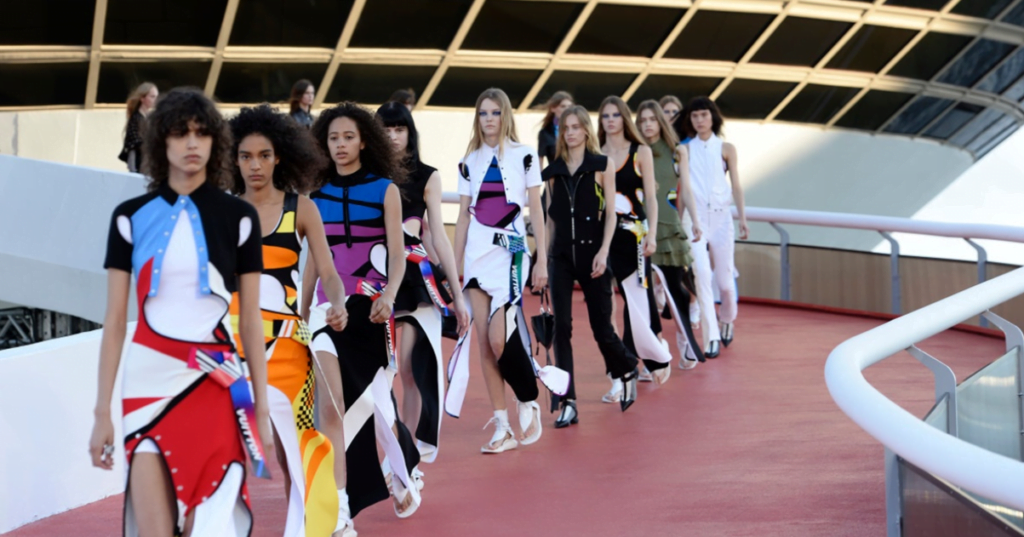
During the 2017 Cruise show, Louis Vuitton offered a limited selection of bags from the collection for online purchase after the event. Iconic bags like the Petite Malle, The Twist, and the City Steamer were among those available for purchase. This clever fusion of glamour and online accessibility attracted a significant amount of traffic, with numerous people tuning in to watch the show online.
The Spring-Summer 2021 show by Louis Vuitton
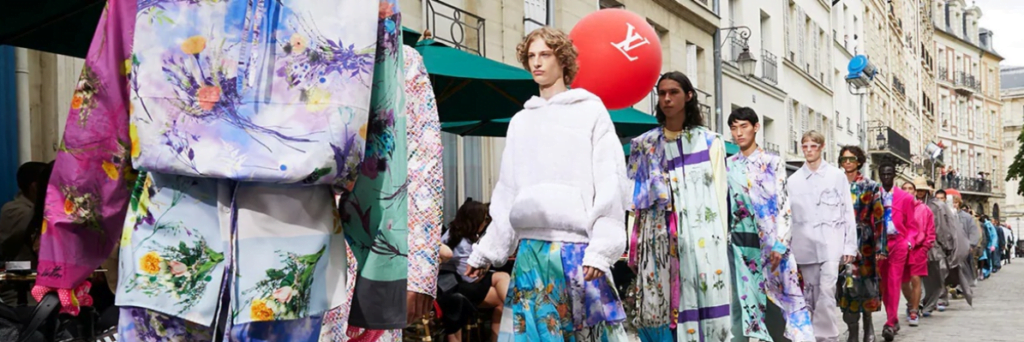
The show presented a diverse lineup of talent on the runway, including individuals from various backgrounds who had never walked the runway before. This display highlighted the company’s commitment to valuing talents and artists, fostering direct connections with them, rather than adhering to the conventional model-dominated runway. The event featured appearances from footballer Héctor Bellerín, skateboarder Lucien Clarke, skateboarder-photographer Evan Mock, and guests like Gigi Hadid and Swae Lee, among others.
Website Conversion Rate Optimization (CRO)
Louis Vuitton’s online presence extends beyond beautiful imagery and aspirational storytelling. The brand’s website is optimized for both user experience and conversion. Given the price points of Louis Vuitton products, website CRO is essential to ensure customers have a seamless and enjoyable shopping experience.
One of the most effective CRO strategies used by Louis Vuitton is personalization. The website offers tailored product recommendations based on user browsing behavior, ensuring that visitors see items that align with their preferences. Personalization is a crucial factor in increasing the likelihood of purchase, as customers feel the brand understands their tastes. This strategy is a key aspect that best fashion marketing agencies in the UAE often highlight when discussing customer-centric marketing approaches.
Additionally, Louis Vuitton’s website mirrors the luxury experience offered in their physical stores. The brand provides customers with a live chat option, where they can speak directly with a stylist to receive real-time advice on product selection. This added layer of customer service enhances the online shopping experience and reflects the kind of premium service expected from luxury brands, a hallmark that best fashion marketing agencies in Australia emphasize for creating seamless, high-end digital experiences.
The checkout process is also optimized to reduce friction. The one-click checkout and guest checkout options help minimize cart abandonment. Additionally, the website offers multiple payment options, including financing for more expensive purchases. By simplifying the purchasing process, Louis Vuitton has successfully reduced barriers to conversion, a practice commonly employed by a top fashion marketing agency UK.
Finally, Louis Vuitton utilizes exit-intent popups to recover potential lost sales. If a user tries to leave the site without completing a purchase, a popup may appear offering free shipping or highlighting a limited-time offer. This tactic helps reduce cart abandonment by creating a sense of urgency and FOMO (fear of missing out).
Wrapping Up
Louis Vuitton’s marketing strategy showcases its ability to merge heritage and modernity, creating a brand that is both aspirational and accessible in the digital era. Through innovative product launches like the Louis Vuitton x Supreme collaboration, immersive social media campaigns such as #LouisVuittonPass, and creative advertising strategies, the brand has managed to stay at the forefront of luxury fashion.
Additionally, Louis Vuitton’s approach to CRO and mobile optimization ensures that its digital presence reflects the same level of luxury as its physical stores. For any fashion marketing agency UK or fashion marketing agency London, understanding the intricacies of Louis Vuitton’s marketing strategy offers valuable insights into how a luxury brand can successfully navigate the ever-evolving digital landscape.
By examining Louis Vuitton’s strategic approach, it becomes clear why the brand remains a leader in luxury fashion. The combination of heritage, innovation, and digital engagement makes Louis Vuitton a prime example of how the best fashion marketing agency can help brands maintain relevance in an increasingly competitive market.
Let's increase your revenue together!
Get Results For Fashion Brand In First 3 Months
As Seen On





Want Us To Be The Growth Partner To Your Business?
Fashion Marketing Case Study
Let's Connect
Address
B1/H3, MOHAN CO-OPERATIVE,BLOCK B, New Delhi, Delhi 110044
Contact
Copyright © 2023 HavStrategy

